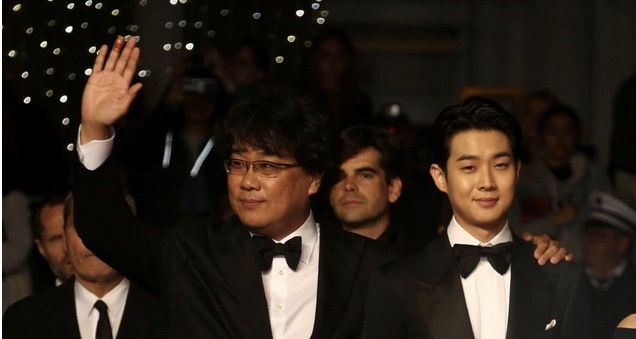The movie tells the story of an unemployed four-person family living in a cheap rental house. It is a superb, moving achievement. When the son, Ji Yu, goes off to work with a rich family as a tutor with fake credentials, the other family three members seek to follow him in due course by working in the luxury house with disguised identities. While the owners of the house are away traveling, the family of four live enjoyably, if temporarily, as rich people in a big house. However, with the unexpected visit of a former housekeeper of the rich house, the story begins to turn. For when the former housekeeper was driven out did not even have her own place to live, she hides her husband in the basement of the luxury house, where no sunshine or light could reveal his presence. The film culminates in an open, ambiguous ending. The father of the poor family kills the male host. In order to avoid the pursuit of the police, he continues to hide in the dark basement. The only way the father thought he could escape the basement, or prosecution, was with the hope that his son would be rich one day and buy the house for the family. But in the bloody scuffle that broke out on the rich family’s return, the son who hit on the back of his head and becomes a vegetative person.
The whole extraordinary movie can be imagined as a mirror of East Asian culture. The beginning part shows a typical Korean family: no matter how poor they are, the father always sits in the main position, and the mother sits on his side to serve him. Additionally, the mainline of the story insinuates the acquaintance culture of East Asian society, and the consequence of nepotism in party politics. This part reminds us of the former South Korean President Park Geun-hye, prosecuted for nepotism. The film’s darkness and depression is as if mirroring the survival status of the entire North Korean nation; the United States is like the movie’s high-class rich family. South Korea is like the poor family. People who live in the basement and can’t ever see the sun are as North Koreans. The upper masters who live in luxury paid no attention to the bloody struggles of the people at the bottom. In the end, that the poor father kills the rich master doesn’t mean he can be a master too. The implication, therefore, is that if and when he really becomes his own master and comes out of the basement, the two Koreas can be unified.
But all of these are just a poor boy’s illusions. About the possibility of the unification of the two Koreas, Director Bong lets you draw your own conclusions. But you do know where he stands.

